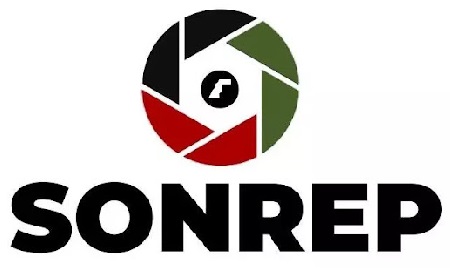Land, Justice and the 50-year Promise

Sahrawi Observatory for Natural Resources and Environmental Justice (SONREP)
In this submission, the Sahrawi Observatory for Natural Resources and Environmental Justice (SONREP) takes stock of the situation in Western Sahara, where the organization has been monitoring the exploitation of natural resources under 50 years of occupation as of October 2025.
Fifty Years of Occupation: Land, Justice and International Law’s Unfulfilled Promise in Western Sahara
Since the 1975 onset of Moroccan occupation, Western Sahara remains trapped in a state of prolonged illegality; a territory suspended between decolonization and annexation, where the language of “development” conceals the ongoing expropriation of land, resources, and rights. What began in 1975 as an armed takeover has evolved into a complex regime of territorial control, population transfer, and economic exploitation that violates every relevant principle of international law.
Over five decades, vast areas of Western Sahara have been appropriated and reallocated to Moroccan settlers and foreign investors under arrangements that lack any legal foundation. Agricultural concessions, mining operations, fisheries, settler colonies and housing, tourism facilities and energy infrastructure have been established on occupied land without the consent of the Sahrawi people, who remain the sole lawful owners of the territory’s resources. What international law defines as occupation has been repackaged as “development,” and what should have been a process of decolonization has been replaced by policies of integration and dependency.
The result is a pattern of land grabbing that serves both political and economic objectives. Settlement schemes and corporate concessions have entrenched the occupying power’s demographic presence, while drawing external actors into a system of profit that normalizes illegality. Land that once sustained pastoralism, small-scale agriculture, and communal use has been converted into industrial zones and export-oriented farms. The occupier has progressively restricted Sahrawis’ access to fertile soil, water, and grazing routes, displacing the Indigenous People and eroding the social and ecological foundations of Sahrawi life.
These practices have profound environmental implications. Intensive phosphate mining, industrial fishing, and large-scale infrastructure projects have degraded fragile ecosystems and depleted natural reserves. The promotion of renewable energy projects on occupied land that often framed as contributions to the global green transition, extends the same logic of exploitation under a different label. Wind and solar installations are being built without local participation or benefit sharing, consuming scarce land and water resources, while reinforcing patterns of exclusion. Environmental harm in this context is not collateral damage; it is integral to a system of control that commodifies both people and nature.
The human cost is equally enduring. For half a century, Sahrawis living under occupation have faced arbitrary detention, enforced disappearances, and restrictions on fundamental freedoms. Peaceful advocacy for self-determination is criminalized, and independent monitoring of human rights remains severely constrained. The militarized wall that bisects the territory stretching more than 2,700 kilometres and surrounded by dense minefields divides families and isolates communities from their lands. Beyond it, generations of refugees continue to live in exile, denied their right to return and to recover their property.
International law has spoken with clarity. The International Court of Justice, in its 1975 Advisory Opinion, found no sovereign ties between Morocco and Western Sahara that could justify the kingdom’s irredentist claim. The United Nations General Assembly has repeatedly reaffirmed the Sahrawi People’s inalienable right to self-determination and to permanent sovereignty over their natural resources. The European Court of Justice has ruled that Morocco possesses no sovereignty or administrative competence in the territory, and that no agreement covering Western Sahara or its territorial waters can be valid without the Sahrawi People’s consent through its legal representative, the Polisario Front. These rulings are consistent, yet they remain systematically disregarded.
The erosion of these norms has consequences far beyond Western Sahara. Fifty years of inaction have transformed a temporary occupation into a de facto annexation, eroding the credibility of the international system that was built to prevent such outcomes of crime. The continued exploitation of the territory’s resources, often with the participation of international companies and institutions, exemplifies the double standard that undermines the universality and integrity of international law.
Redress
Redress for Western Sahara cannot be limited to political negotiation. It must include a process of reparation commensurate with the scale of dispossession. Reparations, in this context, are not an act of generosity, but a legal obligation arising from sustained violations of international law. They encompass the restitution of confiscated land, compensation for the unlawful exploitation of natural resources, rehabilitation for displaced and affected communities, and guarantees of non-repetition grounded in genuine self-determination.
Environmental restoration must also form part of this remedial framework. Repairing the damage caused by decades of unsustainable extraction, restoring degraded ecosystems, and protecting shared natural assets are essential to any future rooted in justice and sustainability. A just transition in Western Sahara cannot begin while the occupation itself remains profitable and unaccountable.
After fifty years, the central question in Western Sahara is whether the international community will continue to accept a system of dispossession and exploitation that openly contravenes its own laws and values. Decolonization remains unfinished, not because the principles are unclear, but because they have not been enforced. Justice for Western Sahara demands more than sympathy: it requires accountability along with reparations. That includes restitution, and the restoration of both the land and its people. Only through these measures can the realize the promise of international law for world order, with the rights to self-determination and remedy at its core.
See also: “Sahrawi Observatory Report: Energy Projects as Tools of Occupation and Plunder,” 24 June 2025
|